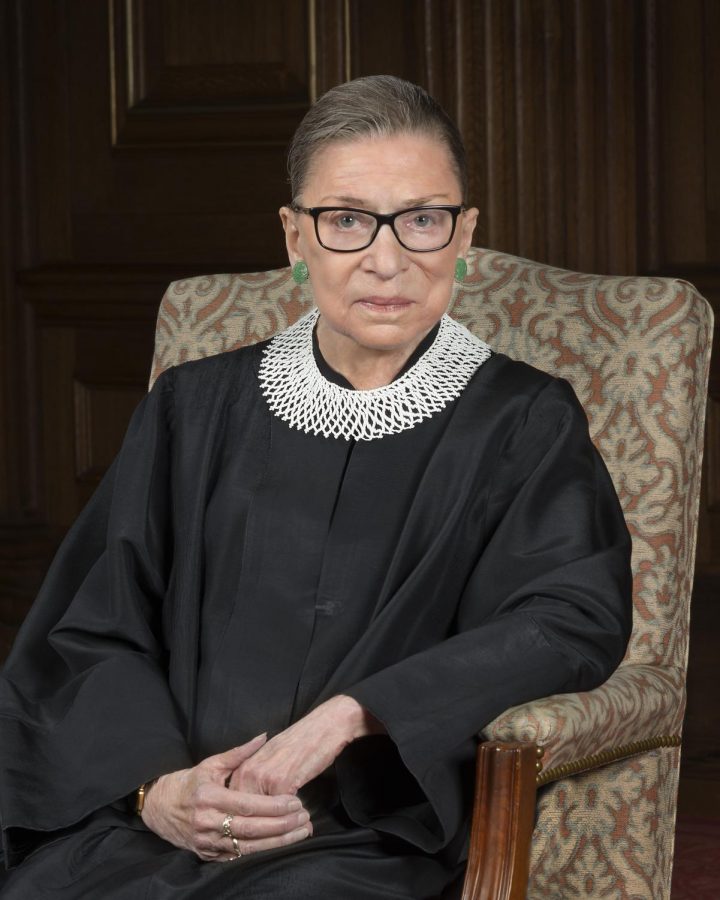In Memory of Ruth Bader Ginsburg
A look back on how RBG revolutionized the role of women in our country’s judiciary system.
Sep 25, 2020
Last Friday, Sept. 18, Supreme Court Justice Ruth Bader Ginsburg passed away at home in Washington, DC. As the second woman to be appointed as Supreme Court Justice, Ginsburg is remembered as a symbol of empowerment for all.
Nicknamed the Notorious RBG (a reference to rapper Notorious BIG), Ginsburg is seen as an icon by young generations. A champion of equal rights, Ginsburg mainly fought for policies in support of gender equality. Ginsburg also fought to protect Roe v. Wade (1973), advocating for women’s rights to an abortion and reproductive healthcare. Throughout her career, Ginsburg was progressive, fighting for change in society where change hadn’t been seen before.
“I would just like people to think of me as a judge who did the best she could with whatever limited talent I had to keep our country true to what makes it a great nation, and to make things a little better than they might have been if I hadn’t been there,” Ginsburg once said.
Some of her greatest achievements are her roles in the following gender discrimination cases: Frontiero v. Richardson (1973), United States v. Virginia (1996), and Ledbetter v. Goodyear Tire & Rubber Co. (2007). Ginsburg also played a role in decisions surrounding LGBTQ+ rights, voting rights, and racial & social justice. Additionally, Ginsburg wrote dissents on decisions made both in and out of court, including the Gonzales v. Carhart decision, a case on a ban of a method of abortion, and against the Trump administration itself. On dissents, Ginsburg said, “Dissents speak to a future age. It’s not simply to say, ‘My colleagues are wrong and I would do it this way.’ But the greatest dissents do become court opinions and gradually over time their views become the dominant view. So that’s the dissenter’s hope: that they are writing not for today, but for tomorrow.”
Alongside Justice Sandra Day O’Connor, Ginsburg advanced the role of women in not just the Supreme Court, but in all courts of the US. With her passing, there is now an open seat on the Supreme Court— a seat that can never truly be replaced. However, all hope is not lost; as Ginsburg herself also said, “Real change, enduring change, happens one step at a time.”




